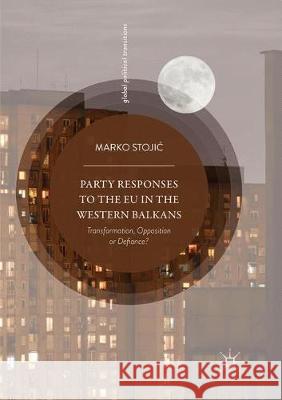Party Responses to the Eu in the Western Balkans: Transformation, Opposition or Defiance? » książka
topmenu
Party Responses to the Eu in the Western Balkans: Transformation, Opposition or Defiance?
ISBN-13: 9783319866512 / Angielski / Miękka / 2018 / 291 str.
Kategorie BISAC:
Wydawca:
Palgrave MacMillan
Seria wydawnicza:
Język:
Angielski
ISBN-13:
9783319866512
Rok wydania:
2018
Wydanie:
Softcover Repri
Ilość stron:
291
Oprawa:
Miękka
Wolumenów:
01











